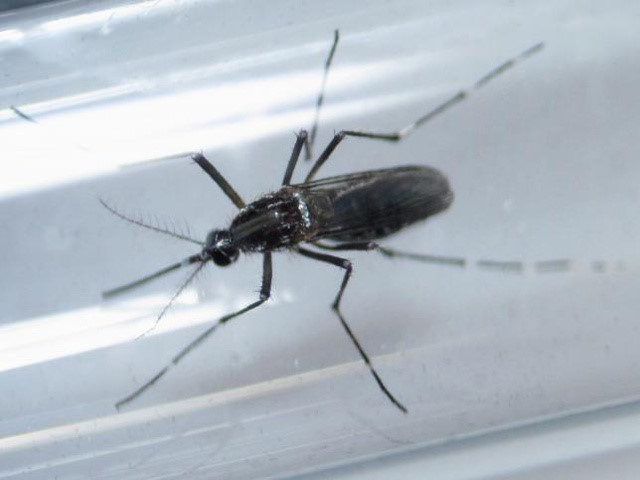As northern Florida confronts the heavy winds and rains of Hurricane Hermine, biology experts warn that the storm may aid the spread of the Zika virus, now confirmed to be present in mosquitos in the state.
“You’ve heard the message with Zika – We want no standing water. Well, we’re going to have standing water when this happens,” Governor Rick Scott said in a press conference Thursday before the hurricane, now tropical storm, made landfall. Standing water allows mosquitos to lay eggs, and the more mosquitos breed, the more likely Zika is to spread in any given area.
“We have to get rid of standing water. That’s the most important thing we can do now and after the this [sic] storm hits,” he concluded.
Experts note that an increase in the mosquito population is a certainty, but whether they are the species that carries Zika depends on where these pockets form.“We’re going to have mosquitoes out the yin yang,” Joe Conlon, technical adviser for the American Mosquito Control Association, told Fox News. He noted that it would take winds of at least ten miles an hour to hamper preventative measures targeting the aedes aegypti mosquito species, which carries Zika.
Hurricane Hermine was a Category 1 hurricane when it landed on northern Florida shores Thursday night. The U.S. National Hurricane Center estimated its average winds at about 80 miles an hour.
Dr. Peter Hotez of the Baylor College National School of Tropical Medicine noted that a hurricane is not all bad news for the Zika fight, as the winds can also kill plenty of mosquitos. “The good news about hurricanes is they can wash away mosquito populations. The downside is that the hurricane will interrupt any ongoing efforts of mosquito control,” he told CBS News. “And then as the floodwaters recede, we could see the reappearance of mosquitoes.”
The hurricane arrived just as Florida officials confirmed they had trapped three aedes aegypti mosquitos in Miami Beach that tested positive for Zika. The three, among tens of thousands, could spread the virus to humans. If they breed, they can spread it among themselves, increasing the odds of someone in the area contracting the virus.
“This find is disappointing, but not surprising,” Commissioner of Agriculture Adam Putnam said, according to Reuters.
Governor Scott has approved aerial spraying measures in South Florida, where the presence of Zika is confirmed. The U.S. Centers for Disease Control (CDC) has warned pregnant women to avoid a small part of Miami Beach where aedes aegypti mosquitos have been found, as well as the northern Miami neighborhood of Wynwood. The government has yet to confirm any other Zika hotspots, however, even though at least one locally acquired Zika case has been documented in northern Pinellas County. Local media revealed that the patient in that case is a firefighter in Tampa, suggesting that Zika is present in the area most likely to be affected by Hurricane Hermine.
Florida authorities have confirmed 49 locally acquired Zika cases in the state so far. They are blaming, in part, bromeliads, which can hold small pockets of water, as these are where the Zika-positive mosquitos in Miami Beach were found. “Miami Beach is taking a hardline approach in our fight against Zika, including having Code Compliance Officers scour the city to determine and rectify potential risks,” including the flowers, according to an official city government statement.
The Zika virus causes no symptoms in most of the people it affects and minor symptoms in the majority of the 20 percent who do experience outward symptoms. The real Zika threat is posed to the unborn. When infecting pregnant women, the virus crosses into the unborn child and severely hinders neurological development. Thousands of infants born in Brazil at the peak of the Zika epidemic in South America have been diagnosed with microcephaly, a condition in which the child’s brain is crushed by a small skull. Microcephaly patients develop a variety of mental and physical medical problems, many of them unpredictable.

COMMENTS
Please let us know if you're having issues with commenting.